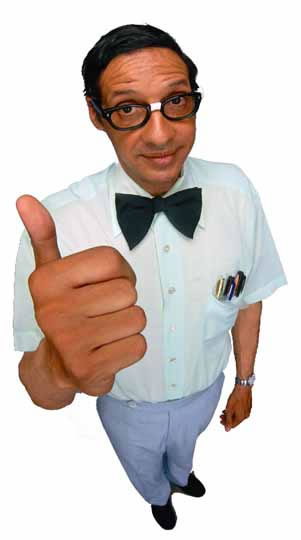October 30, 2022
I am a geek. Many people use geek as an insult, but I use geek to denote an intense fascination and enjoyment of any particular subject. Common examples of geeks include sports geeks, fashion geeks (fashionistas), and gastronomical geeks (foodies). The difference between enjoying something and geekdom is a level of fascination; sports geeks quote player statistics from memory, and foodies have favorite food critics.

I’m an education geek. I enjoy learning and teaching and exploring the theoretical, philosophical, and scientific underpinnings of learning and teaching. I enjoy reading books, articles, and research studies about education; therefore I am an education geek.
Geeks hunt for the best. Movie geeks want theatres with the best sound systems and projectors. Fashionistas shop for cutting-edge, unique fashions. Education geeks pursue the most elegant and effective educational practices and my search led me to the Montessori Method. I beg your indulgence as I share my journey.
In college, I decided to teach, so in addition to declaring an art major, I also joined the education department. After 13 years as a student, I thought I understood education; my ignorance was soon revealed.
Professor Jean Ketter opened my eyes when she introduced me to Resistance in Education, a field of research into why some students defy the educational system, usually to their own academic devastation. An example of a Resistance in Education study is an exam question describing a problem with the cafeteria followed by the directions “Write a letter to the Principal of your school explaining the problem in the cafeteria and proposing a solution.” Most students wrote a letter; many surely resented the assignment, but they knuckled under and completed the task as directed.
However, a few students did not write the letter. Interviews revealed these students had refused to attempt the task because they “would never write a letter to the Principal to solve a problem”. The assignment required was so out of character for these students that they refused to participate.
Resistance to Education was my first recognition that traditional school is a game. I had naively believed schools were objective meritocracies in which students succeed or fail according to ability. Reading, debating and analyzing Resistance in Education revealed the reality that schools are systems with objectives and rules, and strategies, and like any system, schools can be “played” or manipulated.
It is my belief that most teachers were good students and felt accomplished. It is hard to imagine anyone wanting to return to classrooms for 30+ years unless they had positive memories. Perhaps some knew how to play the “game of school”, or perhaps, like me, they just “played nice” without asking why and quietly collected high marks and accolades.
Delving into writings about Resistance in Education, Pedagogy of the Oppressed, and Hidden Curriculums, I began to review my years as a student with new insight into my classmates’ behavior and my own. I had accepted the rules of the game without question and excelled in school, but the “game of school” is rigged; not everyone has a fair chance at success. Those unwilling to set aside their personalities to assume the role of student and “write letters to Principals about problems in cafeterias” are only one example of the skewed circumstances that are common in the “game of school”.
Knowing children are playing a game without understanding the rules, without even realizing they are playing a game with profound impacts on self-worth, self-confidence, and a whole host of beliefs and attitudes is unsettling. Realizing that this game is unfair is appalling.
Professor Ketter again changed my life by introducing a wide range of educational research and thought inspiring me to seek alternatives to traditional education. The writings of John Dewey, father of Experiential Education, introduced me to Constructivist educational thought and the hope that education isn’t limited to a “game” bearing only an abstract relationship to real life. Dewey envisioned a curriculum evolving from student interests with direct connections to life; unfortunately, he did not develop a practical methodology, leaving a dream with no blueprint.
Each new educational thinker challenged my preconceptions about standard elements of traditional education standards such as grading, testing, and social reform. I was excited by the possibilities, but no one provided a concrete plan to make these ideas a reality.
After graduating college, I began teaching high school art during the academic year and spending summers at SuperCamp, an academic/life skills program for students built on cognitive and neuropsychological research. I am fascinated by education built on an understanding of cognitive functions to fully engage the brain. After a few years, I began looking into Montessori education, and the more I learned about the Montessori Method the more I felt I was finding what education should be.
In future posts, I will define current education terminology and discuss how these ideas relate to the Montessori Method. I believe Dr. Maria Montessori was the kind of genius seen once in a century, a Newton or Einstein of education. In 1906 she anticipated dozens of educational principles identified in recent decades through independent research. Her work influenced Jean Piaget, the father of developmental psychology, and Erik Erikson’s Psycho-Social Development theory. The Montessori Method is an impressive pedagogy that integrates many of the best educational practices for children and families.